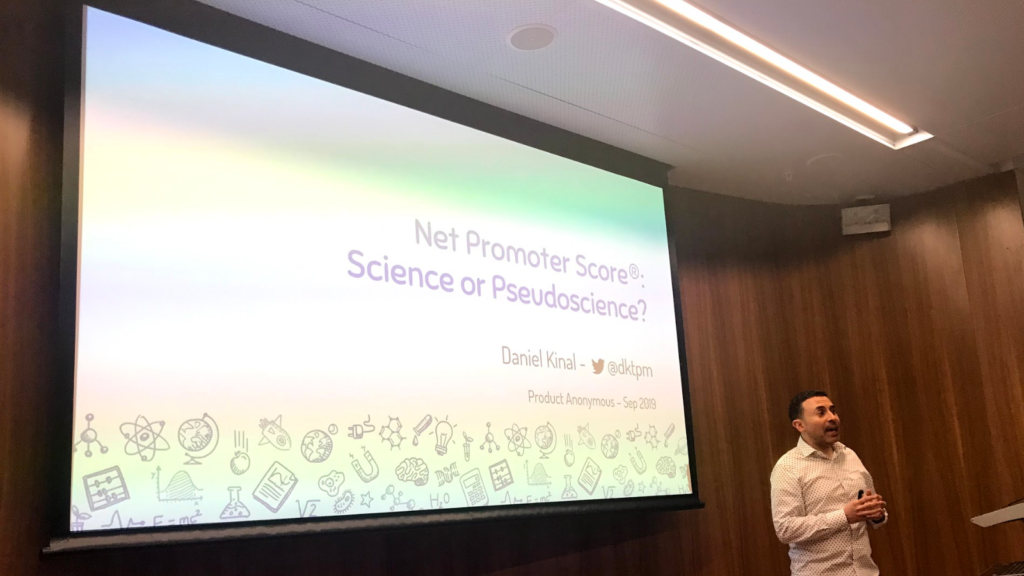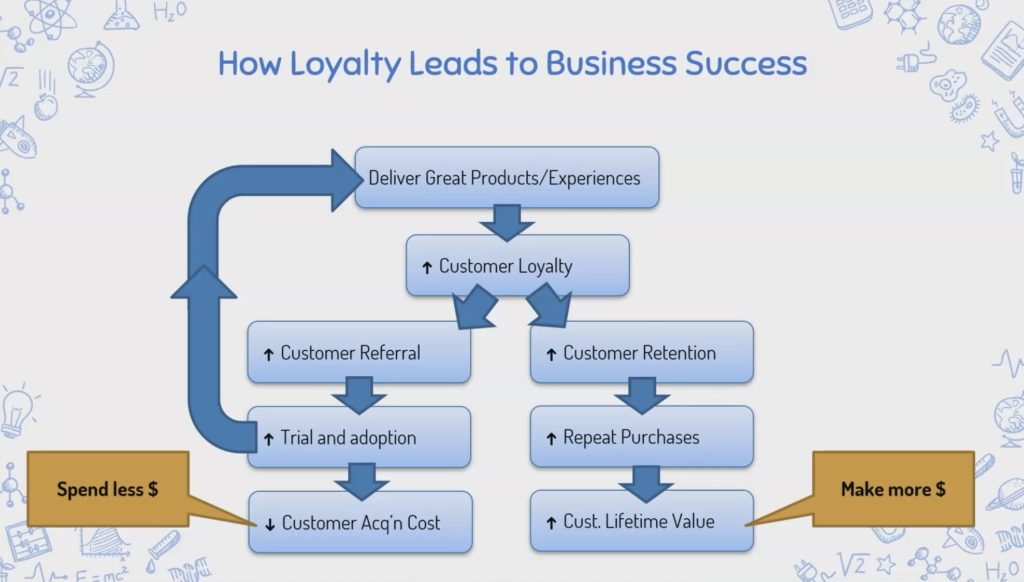Over the years, Net Promoter Score (NPS) has become the default question to measure and maximise value. But is it right? Is it true? Daniel Kinal joined us to share his thoughts.
Where did NPS come from?
Back in 2003, Fred Reichheld introduced the concept to the world. He felt the current measures of loyalty were too convoluted and complicated. So he did his own study, with surprising results, even to him. What he came up with, Net Promoter Score – the one metric that was supposed to have the strongest correlation to company success.

Why should it work?
The more likely you are to advocate for a brand, the more people will be willing to trial the product, therefore reducing your acquisition costs. Also, those advocates are more likely to be repeat customers and increasing their lifetime customer value. Score. Double score!

Some caveats:
- Simply irrelevant in some industries
- Not predictive in a monopoly or near-monopoly conditions
- Data analysed was historical, not future
- Unconvincing replication studies.
- Highly volatile measure
- Obscures critical information
Is there a correlation? Well, yes. Is it good as a predictor for future success? Well, maybe not as much. In fact, in one study, NPS only explained 38% of future growth.
Bastardisation
If you game your scores, what do you really achieve? From colour coding, nudging your scores, and filtering out negative results. What are you actually able to learn?
Is there an upside?
Yes, some compelling aspects of NPS include, it is relatively cheap, fast, simple; and well accepted.
Already using NPS? Make the most of your data.
- Don’t focus purely on the number.
- Measure brand or full product experience rather than feature or interaction
- Measure longitudinally and conduct trend rather than a point in time analysis
- Keep it as scientific as you can (randomisation, third party research)
- Compare your NPS to direct competitors
- Remember what you are measuring (loyalty and propensity to evangelise, not product satisfaction).
- Analyse the qualitative feedback
- Collect actionable data too, such as customer satisfaction.

For a shorter version of Daniels’s talk please find this recording from his presentation at Web Directions. Here are the slides from the evening.
Thank you to Medibank for hosting, and all our Prod Anon volunteers for helping on the night, Nadia Gishen, Irene Toh, Marija Becker, Yau and Steve Cheah for this write-up.
